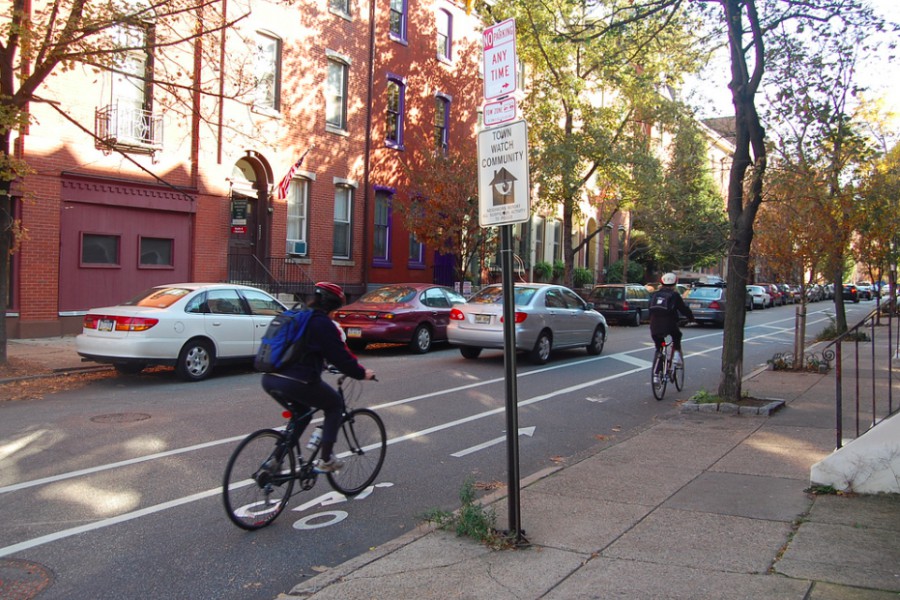City Council Bill Could Hinder Plans for More Protected Bike Lanes
The measure’s introduction comes as cyclists across the city renew their push for safer streets.
City Councilwoman Jannie Blackwell has introduced a bill that, if approved, could hinder bike lane expansion in Philadelphia.
The bill would mandate that a City Council ordinance is required to build, upgrade or modify any bike lane that could potentially affect “the flow of traffic” in Philadelphia. Opponents of the measure say it could significantly stall or block street safety developments and the city’s growing bike lane network.
Blackwell is the same legislator who approved the city’s first protected bike lane, a one-way, 1.1-mile artery on Chestnut Street between 45th and 34th streets. The Bicycle Coalition of Greater Philadelphia, which pushed for the lane for six years, said it will protect cyclists along the busy stretch of the road, where crash rates per mile are three times the city average. But Blackwell expressed regret after the grand opening ceremony last summer, in large part because drivers and others complained that the bike lane required Chestnut Street to change from three lanes to two lanes in that particular span.
Cyclists were upset with Blackwell’s hesitation then, and they’re upset with her bill now, despite the fact that Blackwell told PlanPhilly that she didn’t think the Bicycle Coalition would “be so concerned” about the recently proposed measure. Blackwell said she isn’t sure if the bill makes bike lane expansion “harder or not,” but that she wants to ensure “that everybody that uses that street has their opinion considered,” according to the publication. Blackwell could not be immediately reached for comment on Tuesday.
While City Council considers slowing down progress on #VisionZero, let's flood their email inboxes and let them know what we think. #VisionZeroPHL https://t.co/KPmBlXuBSb
— Bicycle Coalition of Greater Philadelphia (@bcgp) February 23, 2018
A law passed by City Council in 2012 requires Council approval for any street redesign that removes a car travel lane. But such approval is not currently necessary on streets where bike lanes already have a painted buffer (like Spruce and Pine streets) as long as modifications don’t take away travel lanes.
Sarah Clark Stuart, executive director of the Bicycle Coalition, said the language of the bill is “confusing.”
“It implies that modifying a bike lane would affect travel,” Clark Stuart said. “I’m not clear that this is always the case, and I’m not sure what the standard would be and who would decide.”
The measure’s introduction comes as the Bicycle Coalition and cyclists across the city are renewing their push for more protected bike lanes – months after 24-year-old Emily Fredericks was struck and killed by a trash truck while using an unprotected bike lane on Spruce Street.
In addition to the language, Stuart is concerned about the bill for two other reasons: First, she said, protected bike lane projects are “taken very seriously by the city administration and undergo a lot of community input and consultation with Council. That is already happening.”
Second, she said, requiring ordinances for a broader set of traffic measures can “slow down” efforts to implement the city’s Vision Zero plan, which aims to eliminate traffic-
“Vision Zero and traffic safety need to be prioritized,” Stuart said. “They should be coming first for City Council. This kind of bill doesn’t send that signal.”



